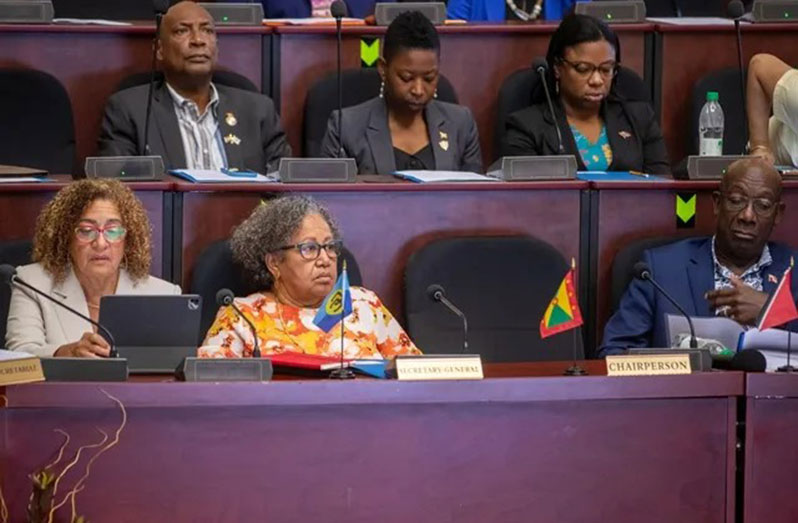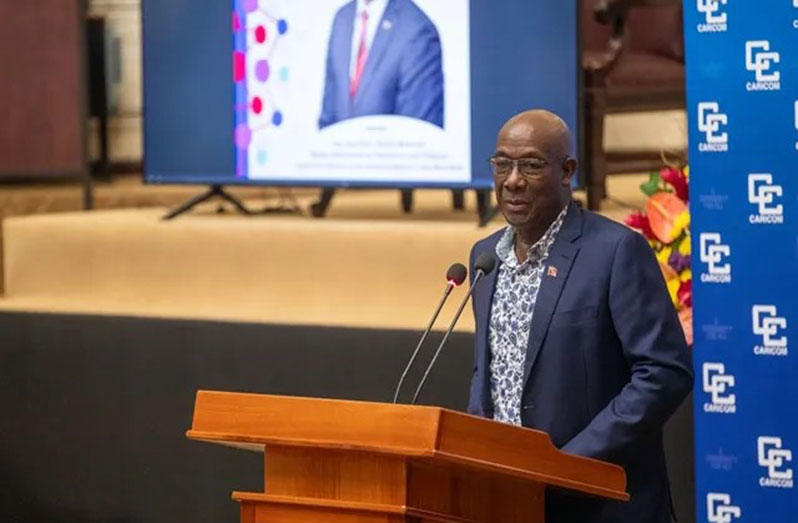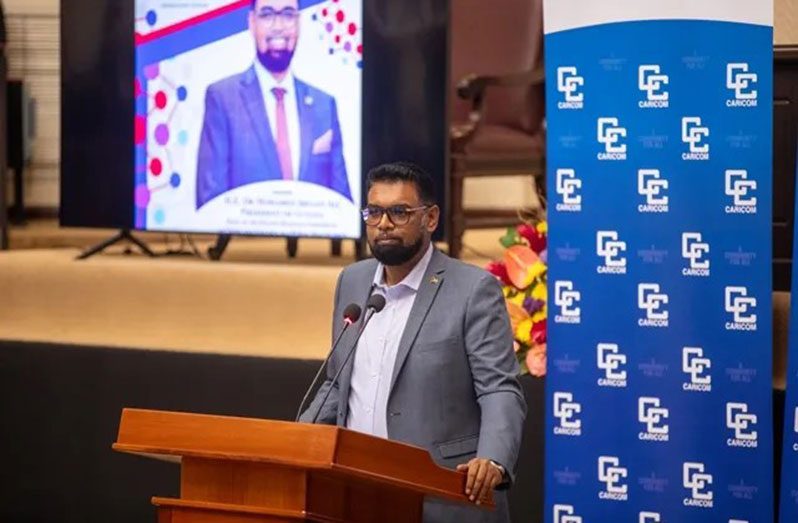–CARICOM launches regional arrest warrant bill to combat cross-border crime
CARIBBEAN Community (CARICOM) leaders have unveiled a landmark arrest warrant bill aimed at standardising extradition processes, and bolstering the region’s capacity to tackle cross-border crime.

The announcement came during the Second Regional Symposium on Violence as a Public Health Issue – The Crime Challenge, held on Friday.
The two-day symposium brought together leaders, policymakers, and stakeholders to address the Caribbean’s pressing crime challenges. With a focus on finding collaborative solutions, the event emphasised the economic and social burdens of violent crime on the region’s small states.
President of Guyana, Dr. Irfaan Ali highlighted the devastating impact of violent crime on Caribbean nations. Citing a 2017 IMF report, he pointed out that 40 per cent of the region’s population views crime and security as their country’s most critical issue. Dr. Ali noted the strain on healthcare systems and other vital sectors caused by crime-related spending.
“We know that the first sector affected by this burden is healthcare,” he explained. “If we have to divert resources to address social needs caused by crime, it impacts investment in health and other critical areas.”

He further illustrated the financial toll, stating, “Just imagine if we did not have this impact, we could have increased our education budget by 80 per cent. In social services, the impact is even worse.” Dr. Ali urged regional leaders to recognise the scale of the problem and act decisively.
The symposium’s highlight was the announcement of the CARICOM Arrest Warrant Bill, a legislative framework designed to harmonise laws across member states. By standardising extradition processes, the bill ensures a seamless transfer of individuals accused or convicted of crimes between jurisdictions, closing loopholes for cross-border criminals.
Prime Minister of Trinidad and Tobago Dr. Keith Rowley, who spearheaded the symposium’s first iteration, celebrated the bill’s completion. “This legislation marks a bold step toward a safer Caribbean,” he said. “Our little criminal punks must now know that there are no safe harbours in any of our CARICOM territories.”

The bill, which will soon be implemented across member states, is expected to significantly enhance regional cooperation in law enforcement.
Prime Minister of Grenada, Dickon Mitchell underscored the symposium’s importance in realising CARICOM’s vision of regional safety. “Every citizen should be secure and have the opportunity to realise their potential with guaranteed human rights and social justice,” he said.
The symposium also examined the root causes of crime, discussing societal and socioeconomic factors that contribute to the region’s crime rates.
With the introduction of the arrest warrant bill, and a shared resolve to address crime at its core, CARICOM leaders reaffirmed their commitment to regional safety. The symposium represents a crucial step in uniting the Caribbean against violent crime, and creating a more secure and prosperous community.
As the discussions continue, the region looks towards a future where collaboration, innovative legislation, and decisive leadership pave the way for lasting peace and security.





.jpg)








